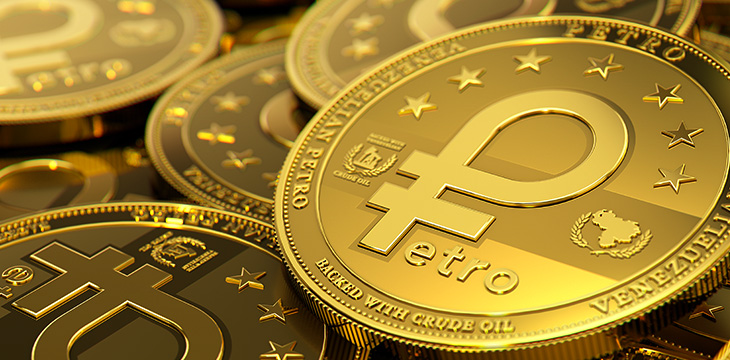|
Getting your Trinity Audio player ready...
|
Pan de Jamon is being replaced by the Petro in Venezuela. For the second year in a row, the government run by President Nicolas Maduro has told retirees, public employees and pensioners that they will be receiving a Christmas bonus in the state-backed digital currency as the country tries to push wider adoption of the supposedly oil-backed cryptocurrency.
According to Venezuelan news outlet Venepress, the Christmas bonus, or Aguinaldo, as it’s known, will be half a Petro. Some 4.5 million retirees, 3.5 million public workers and others are eligible for the bonus, but the recipients shouldn’t get overly excited. According to the value the Venezuelan government placed on the Petro, $60, the amount they’ll receive is only $30.
In 2018, the bonuses were paid in Petro with no prior notice, forcing Venezuelans to scramble to learn how to create crypto wallets and spend the extra money. This year, word about the bonuses was released early and instructions on how to create a “Petrowallet” have been distributed, allowing citizens to “receive the bonus provided by the government and to pay services that it authorizes (for example, the payment of passport duties).
In announcing the bonus payout, Maduro explained that the country has been working on the development of the Petro for around two years and that the government had set aside five billion barrels of oil to back the digital currency. He adds that the state is already producing that oil so that it will back Petro only, but adds that the government also has 30 million barrels of oil that are part of “the direct physical material wealth that sustains the Petro for whoever wants to claim it.”
The Petro is as reliable as Venezuela’s fiat, the bolivar. By paying the bonus in the crypto, Venezuela is most likely banking on the hopes that many people won’t hassle with the process, and the government won’t have to pay out so much money in tangible cash. After all, according to some reports, there are only 100 stores across the country that accept Petro payments, even though Maduro asserts that he is working on agreements with “50,000 merchants in the country.”

 02-22-2026
02-22-2026 




